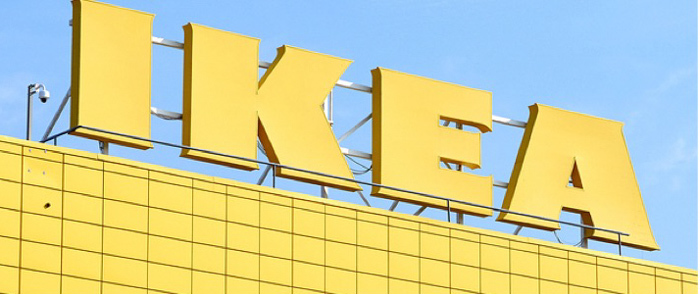How IKEA Promotes Social Entrepreneurship to Help Syrian Refugees

What can Ikea's social entrepreneurship program aimed at Syrian refugees teach organizations about CSR?
Even though it currently employs about 1 million people, Ikea's plan to bring on another 200,000 disadvantaged employees for a social entrepreneurship initiative is ambitious. The Swedish organization, known for its inexpensive furniture, announced its initiative early in 2017, according to Deezen. Jesper Brodin, Ikea's head of range and supply, says the organization hopes to reach its goal within 10 to 15 years. Ikea kicked off the program with an initiative in Jordan aimed at employing Syrian refugees.
Ikea's Program
Ikea began its initiative in November 2016, when it opened production facilities in Amman, near Jordanian refugee camps. The organization's program was designed to spur local entrepreneurship. Ikea sent a team of designers to Jordan to determine the types of products that might be produced. According to Deezen, Brodin says the idea isn't to create traditional handicraft but to try to "create new expressions based on their skills and traditions so we can leave them with pride but also an opportunity to begin their own business." Those products include textiles, handwoven rugs and other decorative items designed for export and the local market in Jordan.
The products were launched at Ikea's store in Amman with plans to roll out globally in 2019, as The Huffington Post reports. The program is part of Ikea's "Social Entrepreneurs Initiative," which benefits artisans around the world. It has also been developed in cooperation with the Jordan River Foundation, an NGO chaired by Queen Rania Al-Abdullah, the wife of Jordan's King Abdullah.
Humanitarian Focus
Like many global brands, Ikea has articulated a vision for social and environmental sustainability. In 2014, the organization released its People and Planet Positive report, which acknowledged the realities of climate change and overpopulation along with issues like the lack of clean water and deforestation. The report also states a commitment to "advocate and influence key stakeholders and policy development that supports positive change in society, alongside the actions within our business."
The Jordanian initiative appears to be an offshoot of that desire. What's more, Ikea's approach isn't mere lip service. As The Independent notes, "Where many brands and retailers count promotional activities and donations to those in conflict-stricken areas among their CSR efforts, Ikea's approach implements a more long-term, sustainable model of support."
What to Learn From This
Corporate CSR programs have been criticized for being too business-focused. As Harvard Business Review notes, "There is increasing pressure to dress up CSR as a business discipline and demand that every initiative deliver business results." While business results are welcome, the true imperative of CSR should be to align an organization's activities with its values and goals.
Ikea might see business benefits from its Jordanian program when products start hitting stores in 2019. More likely though, the main benefit could be a bolstering of Ikea's stated commitments to influencing positive change in society. Similarly, corporations aiming to create their own social entrepreneurship programs might ponder how to promote local entrepreneurs in ways that are brand-appropriate even if they're not likely to contribute much — or anything — to the bottom line.
Of course, the strange thing about CSR initiatives is that you get most of the credit at the time of the announcement. Will anyone be following up with Ikea in 15 years to make sure it has met its goal? That will be the true test of whether this CSR program is really about positive change rather than public relations.



